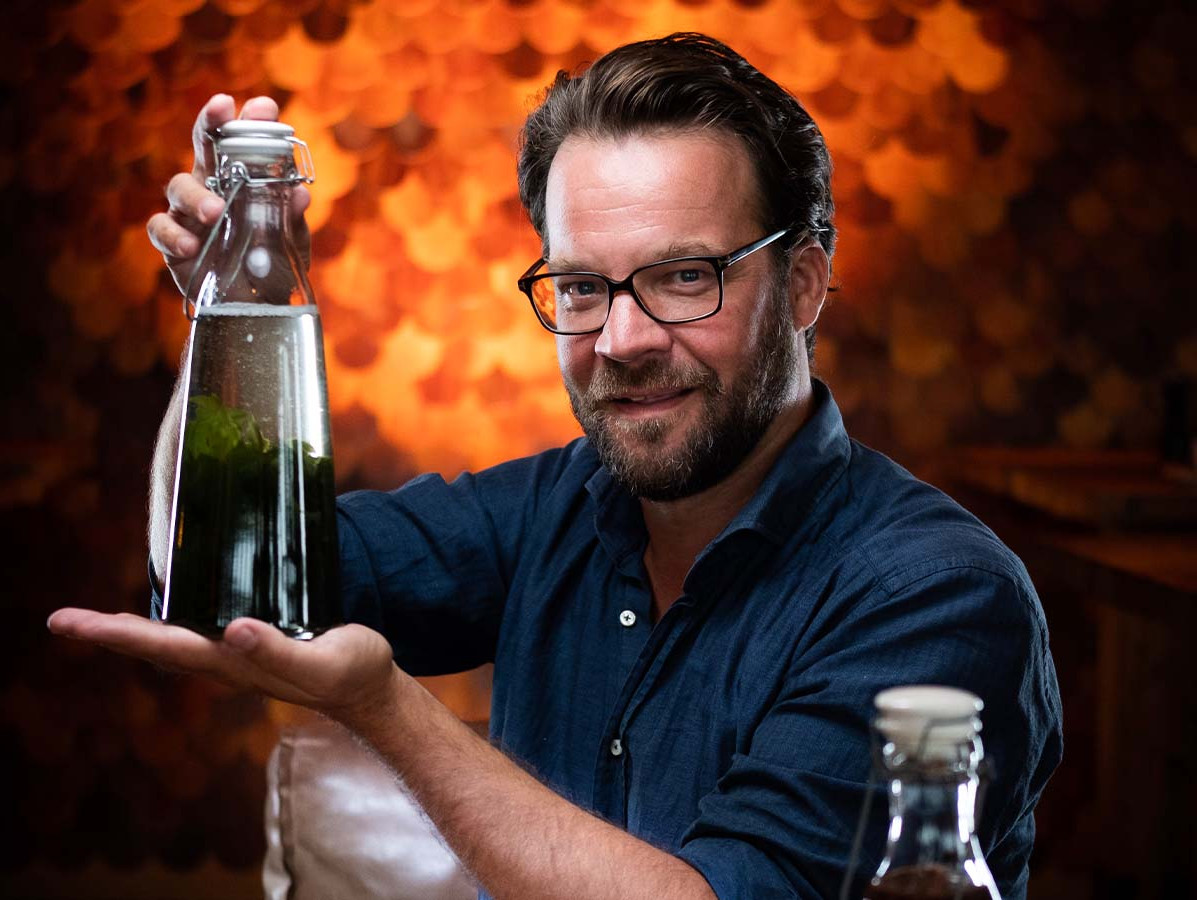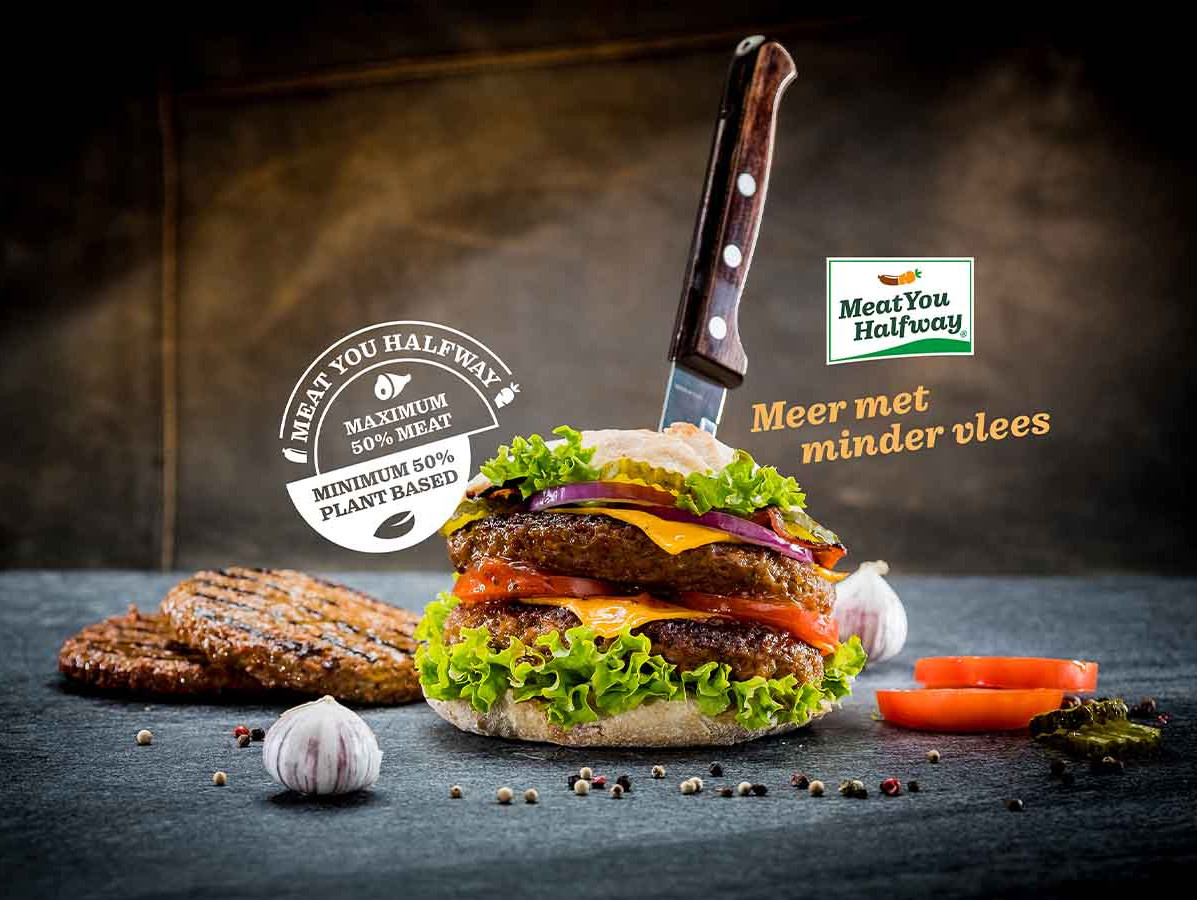
Starting with cured sausages flavored with liquor, Remko Hol, the head of Olijck Foods, took his first steps in the food industry. Upon discovering that the pigs used for his sausages consumed seaweed, it sparked a thought: why don't we eat seaweed directly?
Remko then developed an entirely plant-based product, but in his opinion, it wasn't quite up to scratch. Revisiting the drawing board, he conceived a product that's causing a real stir: the hybrid meat from Meat-You-Halfway (a balance of up to 50% meat and at least 50% plant-based).
"Past failures boiled down to taste, juiciness, and texture. Our products are indistinguishable from conventional meat. Consumers can handle it just as they've always dealt with meat. The colors and aromas are familiar, very much like traditional meaty scents. You won't find bits of cauliflower, bell pepper, or other odd ingredients that might make someone say, 'that’s odd.'"
"That’s part of it. Seaweed intensifies meat's fatty flavor, so it can partially take over the role of fatty meat. But there are additional reasons, like the climate benefits: the sea covers about 70% of the Earth, viable for seaweed cultivation. Seaweed farming even actively captures CO2 from the atmosphere. Moreover, seaweed retains impressive nutritional values, unlike some modern vegetables that have lost nutrients due to selective breeding. Seaweed is much less modified and therefore still has the nutritional values of 150 years ago. Finally, a lot is possible in terms of taste. With around 18,000 different seaweed varieties, almost all land-based flavors have a seaweed counterpart."
"Shifting towards plant-based diets is beneficial, but whether a fully plant-based diet is feasible remains debatable. For instance, you still need manure for fertilizing fields. For that reason alone, I believe hybrid products will remain relevant. We're almost at the stage of perfecting a purely plant-based product, but we aren’t rushing its release. Maybe in five or six years. Transitioning too swiftly doesn’t make sense. People need time to adjust to plant-based foods. Push them too hard, and they’ll resist change and stick with their old ways."

"That's not an issue at all! Huge volumes of seaweed are already being produced. Many who care about personal wellness use it daily in products like salves, cosmetics, and toothpaste. In Europe, we are already allowed to process 36 species of seaweed."
"We adhere to standard regulations. We can work with all meat varieties: regular, Better Life, halal, and so on. That’s the beauty of it. Our objective is to substitute as much meat as possible. We provide the essential ingredients to blend the meat and seaweed and also supply those raw materials. We do have a production facility, but we only develop recipes there."
He chuckles. "Now that's the million-dollar secret!"
“Seaweed itself is a natural binder. The way it is added and the temperature in the production process create the binding. That's a big advantage. This eliminates the need for artificial, unhealthy binding agents. I dare say our products rank among the healthiest meat and meat substitute options. Unlike mainstream meats like chicken, beef, and pork, they have equal protein content, 12% fiber, and a maximum of 0.9% salt. The flavor remains uncompromised. Seaweed, besides enhancing the flavor of fat, also amplifies the saltiness. Moreover, seaweed acts as a preservative, eradicating the need for unhealthy additives."
"Anyone keen on reducing their meat intake. Our dream client? McDonald's. If there's a place where beef burgers fly off the counter globally, it's there! We've already pitted our burger against theirs. The Meat-You-Halfway burger is juicier and more flavorful. It simply offers more. We've even coined a name for it: ‘the McHalfway’. Better for animals, climate and people."
This article was published on Foodbusiness.nl
Source: Vakblad Voedingsindustrie 2023